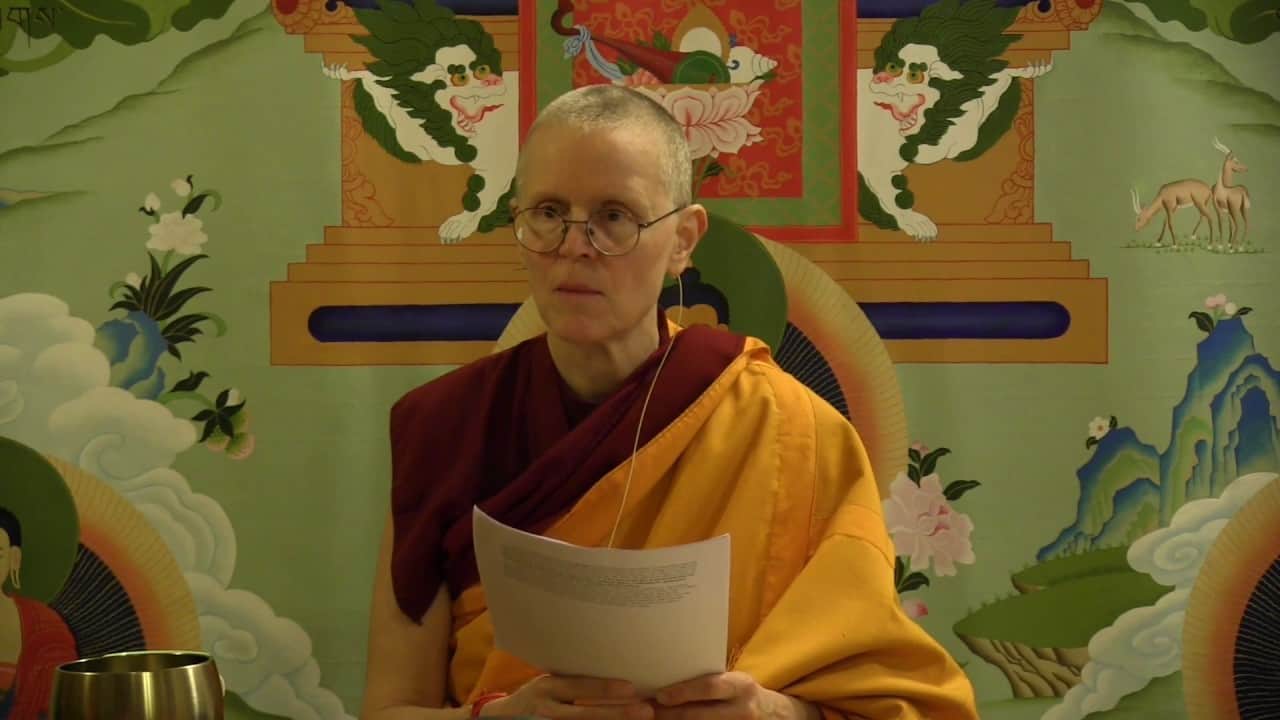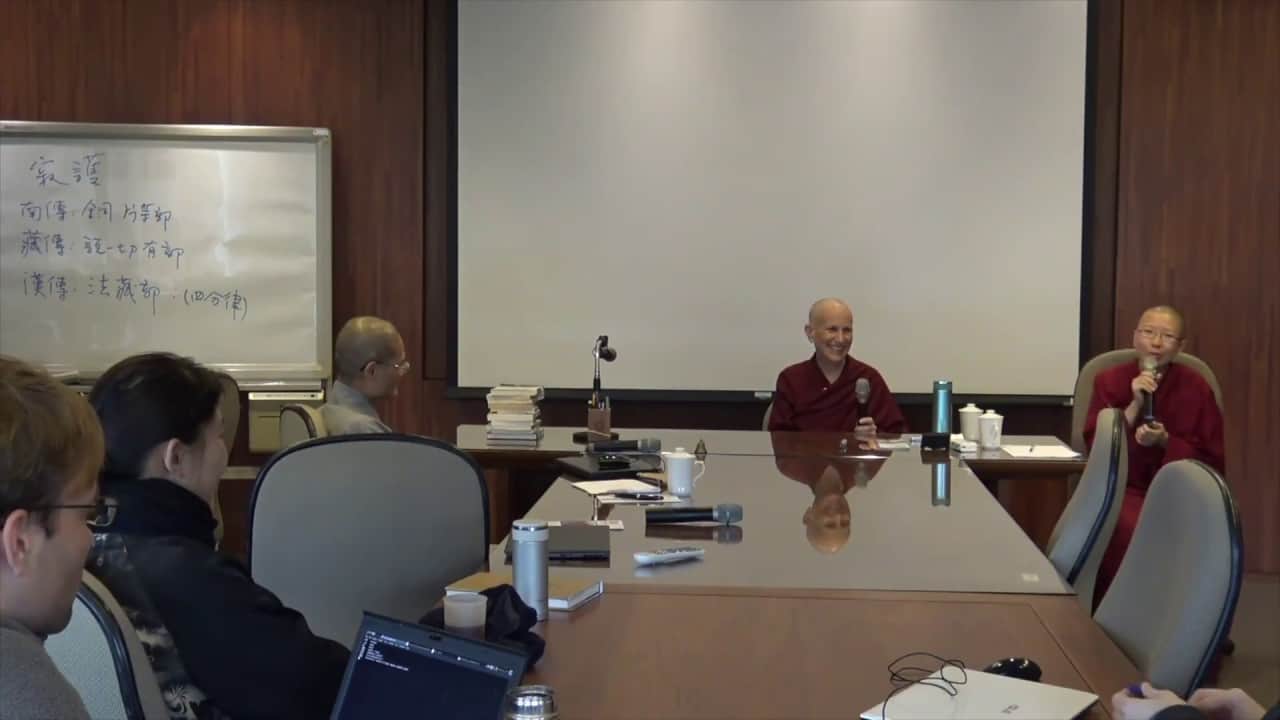Gomchen Lamrim review: Karma
Part of a series of teachings on the Gomchen Lamrim by Gomchen Ngawang Drakpa. Visit Gomchen Lamrim Study Guide for a full list of contemplation points for the series.
- Recognizing the defects of samsara
- Various ways to describe karma (intention and intended, projecting and completing, contaminated and uncontaminated)
- Karmic factors that influence death and the bardo experience
- The importance of renunciation in generating bodhicitta
- Guided meditation to examine our thoughts and motivations
Gomchen Lamrim 67 review: Karma (download)
Contemplation points
Included below is the meditation that Venerable Semkye led during the review, along with extra points brought in from the review itself.
- Spend some time thinking about the main points from the review: how our body gets old, sick, and dies, how our mind is under the control of afflictions and karma, how we’ve been reborn countless times in this state… As Venerable Semkye said, “Who in their right mind wants to stick around?”
- Consider that we keep forgetting how disheartening and dissatisfying and painful samsara is. Why do you think that is so? What distracts you personally from seeing the disadvantages of samsara?
- Consider that by not taking care of our afflictions as soon as they arise, we put ourselves in great danger! We don’t just harm ourselves and others now, we habituate these negativities in our own mind and they can easily ripen at the time of death when we’re powerless to fight them. What kind of rebirth can you expect if you’re overwhelmed with afflictions when you die? How important is it then to be aware of the situations in which you’re the most vulnerable so that you can give your mind protection and begin to habituate virtue in your mind instead of negativity.
- Consider that death can happen at any time. Think about people you know who have died, as well as those who you have read about in the news. Did they die from exhaustion of lifespan? Exhaustion of merit? Death from failure to avoid danger? Consider that you don’t know what karma exists on your mindstream; that anything could ripen at any time and does for people everywhere. Get a sense for the uncertainty and instability of samsara.
- Venerable Semkye concluded by saying that we have to think about what happens at death so that we make a determination to not keep doing this again and again and again. It is only through cultivating renunciation that we have access to great compassion and an ability to begin benefitting others in a meaningful way. This can’t be an intellectual exercise; it HAS to be personal.
- How many of my thoughts today were of renunciation and bodhicitta?
- How many of my thoughts were about your own pleasure?
- How many thoughts today were on how to avoid suffering?
- Make a commitment to yourself that at the end of the day for a week, to ask these three questions of yourself. Commit to changing the balance so that renunciation and bodhicitta become more prominent.
Venerable Thubten Semkye
Ven. Semkye was the Abbey's first lay resident, coming to help Venerable Chodron with the gardens and land management in the spring of 2004. She became the Abbey's third nun in 2007 and received bhikshuni ordination in Taiwan in 2010. She met Venerable Chodron at the Dharma Friendship Foundation in Seattle in 1996. She took refuge in 1999. When the land was acquired for the Abbey in 2003, Ven. Semye coordinated volunteers for the initial move-in and early remodeling. A founder of Friends of Sravasti Abbey, she accepted the position of chairperson to provide the Four Requisites for the monastic community. Realizing that was a difficult task to do from 350 miles away, she moved to the Abbey in spring of 2004. Although she didn't originally see ordination in her future, after the 2006 Chenrezig retreat when she spent half of her meditation time reflecting on death and impermanence, Ven. Semkye realized that ordaining would be the wisest, most compassionate use of her life. View pictures of her ordination. Ven. Semkye draws on her extensive experience in landscaping and horticulture to manage the Abbey's forests and gardens. She oversees "Offering Volunteer Service Weekends" during which volunteers help with construction, gardening, and forest stewardship.


